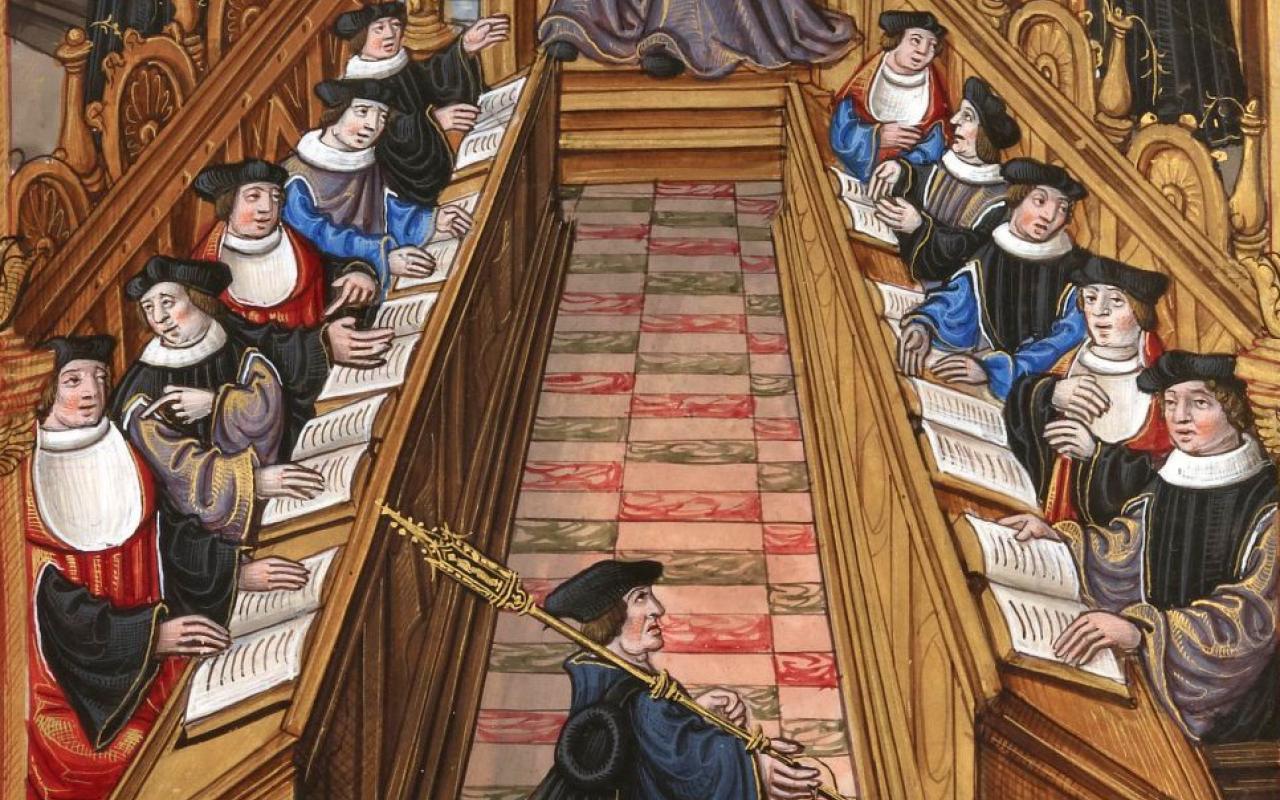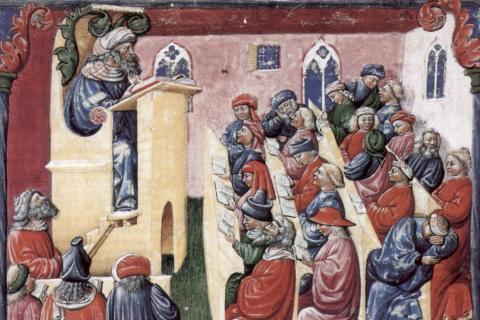
Far from being a diversion on the way to ministry, seminarians must enter into an intensive academic programs in philosophy and theology for the good of the Church. Souls depend on it.
Catholic seminarians are required to spend roughly six years studying philosophy and theology, consuming a substantial amount of time and effort as they progress through their discernment to the priesthood. Anything that requires this much effort is rightly submitted to the question, why? Why should seminarians study philosophy and theology so extensively?
It’s worth making clear that it is the technical study of philosophy and theology here being considered. There is a sense in which all human beings are philosophers, insofar as they possess reason and inevitably ask questions about the meaning of human life. In fact, it even seems that one could argue that children show a constant philosophic spark, as on some level they encounter each situation utterly anew, wondering at their surroundings, their abilities, and how all other things are related to them. There is likewise a sense in which all Christians are theologians, insofar as they seek to receive and understand God’s revelation in the context of their lives. And while this is all well and good, the sort of philosophy and theology seminarians are expected to study are far more technical and cover the whole gamut of questions, regardless of whether seminarians are interested in them or likely to encounter them in their priestly ministry on a regular basis. In this sense, neither is every human a philosopher nor is every Christian a theologian.
So the question at hand is why seminarians are expected to engage in such technical studies for an extended period of time. If we look at the Gospels and the life of the early Church, for instance, we will see that the Apostles weren’t philosophers or theologians and that the most important thing for their ministry was that they had met and could now witness to the living Christ. St. Paul himself claims, “If any one among you thinks that he is wise in this age, let him become a fool that he may become wise. For the wisdom of this world is folly with God” (1 Corinthians 3:18-19). So there’s something to the claim that the heart of the Christian life is not to be found in philosophy and theology, but instead in encountering the living God, living a life of the sacraments, and submitting to God in intellect and will.
And there’s something to this line of reasoning. Even in the life of the Church, it’s the few rather than the many who pursue technical mastery of philosophy and theology. Should a Christian philosopher or theologian forget that the heart of Christianity lies within such an encounter with the living God and the sacramental life, his or her work will become sterile. So the question at hand centers very particularly on seminarians: Why does the Church expect seminarians to be counted amongst the few who study philosophy and theology in a technical manner?
Perhaps an analogy is the best way to get at this question. In terms of health and medicine, the general population benefits from possessing a certain level of knowledge about germs, hygiene, nutrition, and exercise. This may even extend further to include some practical knowledge about treating common illnesses and injuries. But ultimately, not everyone is a healthcare professional nor requires extensive medical training. Instead, the few – healthcare professionals – enter into intense technical study in order to possess a far deeper, more expansive knowledge of human health. This allows them to diagnose a wide range of ailments and provide treatment above and beyond what the general population is able to provide on their own. Thus healthcare professionals need to know a lot more about possible sources of difficulty and even things that can occur even if they rarely do. Medical students enter into extensive study of things they will seldom encounter but nevertheless need a sense for if they are to be competent health care providers, even if they would seldom need to discuss these details with their patients.
So too with priests. All Christians need to know something about the truths of faith and live lives of the sacraments. While not every Christian needs to study philosophy and theology in an intensive, technical manner, it is nevertheless important that some people possess such knowledge. Those who are called to configure their lives to the Divine Physician, Jesus Christ, and to minister to his people accordingly thus need to possess the sort of deep knowledge health care providers rely upon to detect and diagnose problems and offer solutions. And within this analogy lies the answer to why seminarians are expected to study technical philosophy and theology. While the job of intense specializations in philosophy and theology may be entrusted to a few among their ranks (alongside the lay faithful who have pursued those disciplines, as well), the majority will operate as parish priests, akin to general practitioners, utilizing their extensive training not to overwhelm their people with technical treatise-like homilies but to serve their congregations. In short, priests need to know the full gamut of philosophy and theology on a certain level for the sake of everyone else.
But there is an even deeper context for the study of philosophy and theology that goes a bit beyond the medical analogy, for we live within a constant state of spiritual warfare with an enemy – the Prince of this World – who hoists aggressive lies upon humanity. And thus to hold true, the medical analogy would need to exist within a context in which a constant and concerted act of biological warfare were being perpetrated upon the world, in which disease after disease were developed and released upon us. In such a context, any doubts about the importance of intensive, technical medical studies would quickly vanish. So too, when we take stock of the life of the Church and the ministry of priests, recognizing that we are in constant spiritual warfare against an enemy who is known perhaps best for his pernicious and nuanced lies, any doubts about the vital importance of the intensive, technical pursuit of truth for priests should dissipate, as well. Priests need to be alert and alive to the life of the mind and the lies with which their people so often grapple.
So while it’s true that at the beginning Jesus wasn’t calling people into a program of philosophy and theology, the importance of these disciplines would soon be made apparent to the Church. Human beings are naturally ordered to ask fundamental questions of existence and the revelation we had been entrusted by Christ, and we have tendencies to go wrong in certain ways. Through the honing of their minds in programs of technical philosophy and theology, priests are enabled to be aware and stand guard. Although it may not be essential that every priest master every topic, it is essential that there’s a clerical community that knows these things in a direct way for the good of the Church and the salvation of souls.

